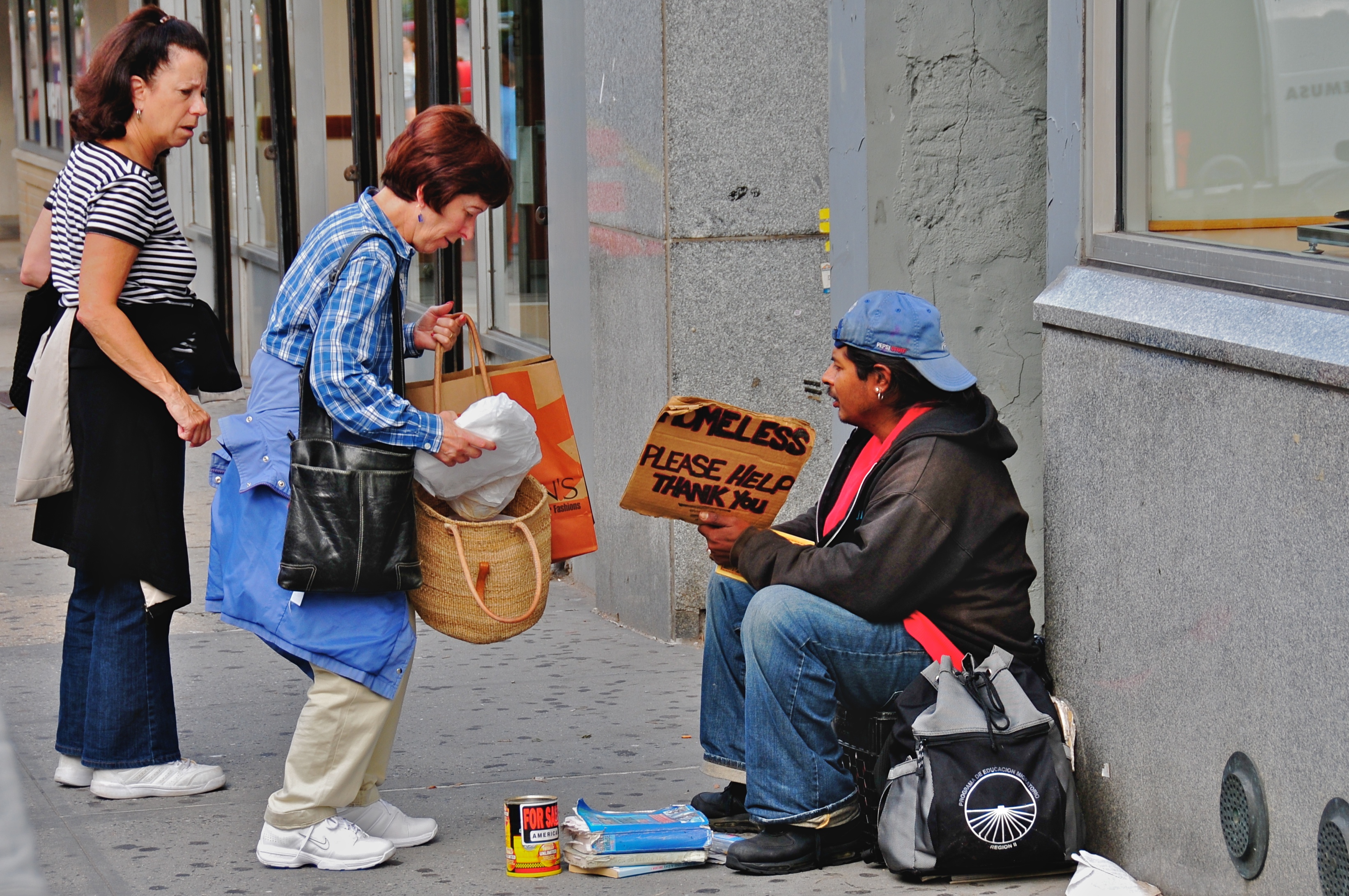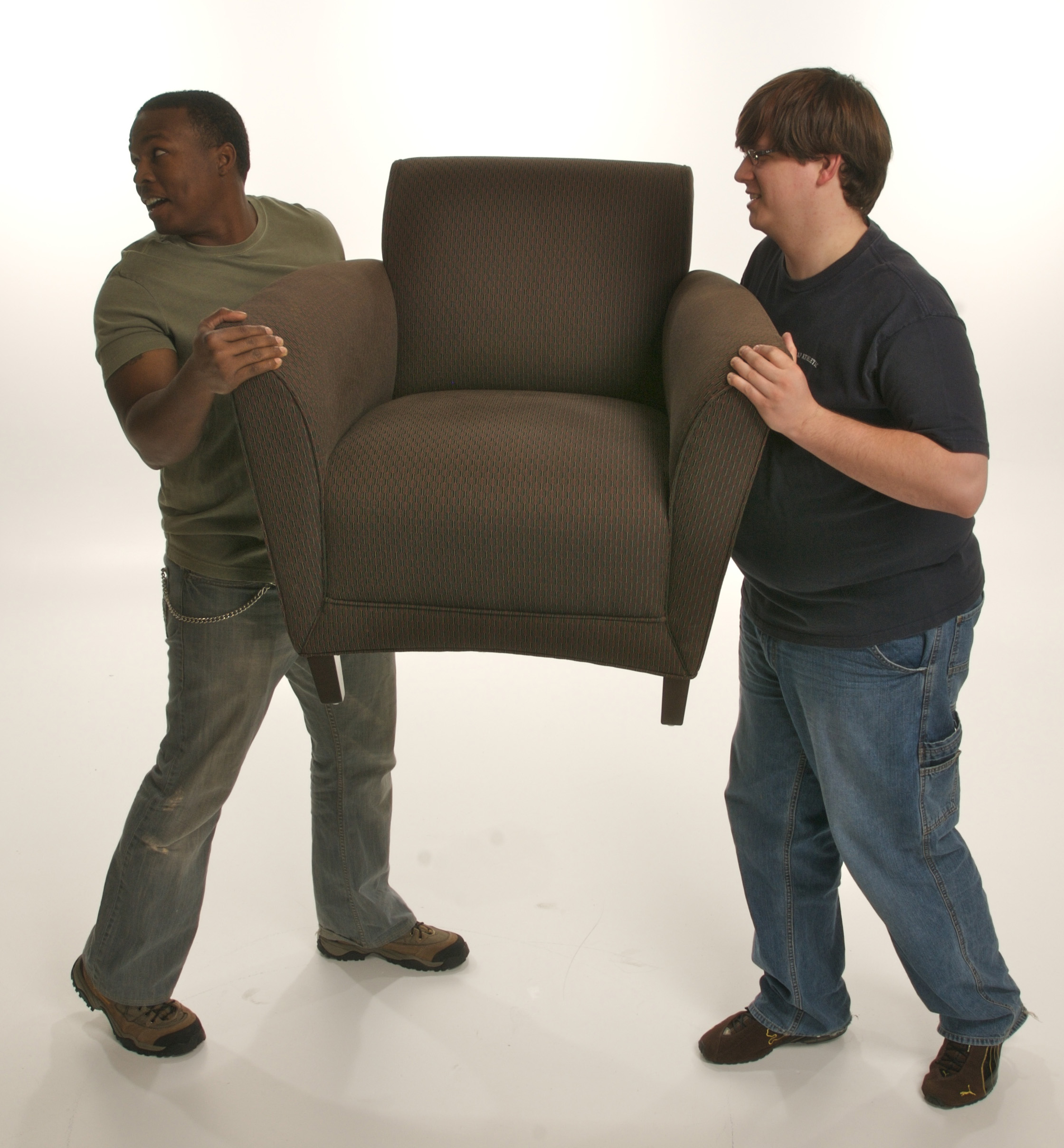Click Here for Sound Bite
Every single one of us at some time in our lives faces a dilemma when we are asked by someone for help. We may see someone at a red light with a sign that says, "Will work for food", or you may be approached by someone at the mall or while you're downtown asking for help or for money.

As a Pastor that handles our mercy ministry at Church and who deals with people who walk inside our church asking for help, I have learned that every situation is different.
As a general rule of thumb, the thing to remember is that the goal of helping people is to empower them, not enable them. We must be careful not to create dependency. Randy Nabors said it well: "The enemy is dependency."
Most people need a hand-up and not a handout. We tend to give people handouts because it's the quick and easy thing to do, but often times people need more than the money or food we give them. If we give them an easy handout, it may only be a band-aid, but the real need may be surgery. Also, a handout could leave room for them to spend money unwisely without any accountability or help to get them back on their feet.
There are certain questions we need to think about before helping someone (taken from the book When Helping Hurts):
- Is there really a crisis at hand?
- If you fail to provide immediate help, will there be serious, negative consequences?
- Can the person help himself? If yes, a pure handout is almost never appropriate, as it undermines the person's capacity to be a steward of his own resources and abilities.
- To what extent has this person already been receiving relief from you or others in the past?
Sometimes it's better for the person if you withhold giving them a handout. Instead, you may need to explain your reason for withholding relief and then offer them wide-open arms and help them find long-term solutions.
The Bible talks a lot about helping people without hurting them. Galatians 6:2, 5 says,
"Carry each other's burdens, and in this way you will fulfill the law of Christ... For each one should carry his own load.
Henry Cloud, author of Boundaries said it this way:
"We are responsible to others and for ourselves. 'Carry each other's burdens (Galatians 6:2)' describes how we are responsible to others. Many times others have 'burdens' that are too big for them to bear. They do not have enough strength, resources, or knowledge to carry the load, and they need help. Denying ourselves to do for others what they cannot do for themselves is showing the sacrificial love of Christ. This is what Christ did for us. He did what we could not do for ourselves; He saved us.
On the other hand, Galatians 6:5 says that 'each one should carry his own load.' Everyone has responsibilities that only he or she can carry. These things are our own particular load that we need to take daily responsibility for and work out. No one can do certain things for us. We have to take ownership of certain aspects of life that are our own load.
The Greek word for burden means 'excess burdens', or burdens that are so heavy that they weigh us down. These burdens are like boulders that can crush us and that we can't carry ourselves. The Greek word for load means 'cargo' or 'the burden of daily toil.' This word describes the everyday things we all need to do. These loads are like knapsacks that are possible to carry.
Problems arise when people act as if their 'boulders' are daily loads, and refuse help, or as if their 'daily loads' are boulders they shoudn't have to carry. The results of these two instances are either perpetual pain or irresponsibilty."
As Cloud says there are some situations where we must help others in need, but there are other situations where the person has to take responsibility. If you find that a person needs to take more responsibility, the best thing to do is help them understand this and give them the proper resources they need to develop further.
If you are still unsure to help, I would err on the side of compassion. If someone is asking for money at a red light, I wouldn't give them money, but I would give them food or quickly tell them about a local ministry or church. If someone is asking you for help and you're able to spend a few minutes with them, sit down and have a conversation with them and hear their story. I've found that people are thankful to just have someone to talk to and to pray with whether you end up giving them money or not. They tend to be thankful because they are treated respectfully, like real human beings, and so often they are not treated that way.

Whenever you're approached by someone asking you for help, don't see them as a burden but see them as a person made in the image of God that should be honored and respected. See it as an opportunity to help them and not hurt them by simply giving them a handout and send them on their way.
For more on this, listen to my sermon "To Serve, Or Not to Serve?".

Write a Comment
Comments for this post have been disabled.